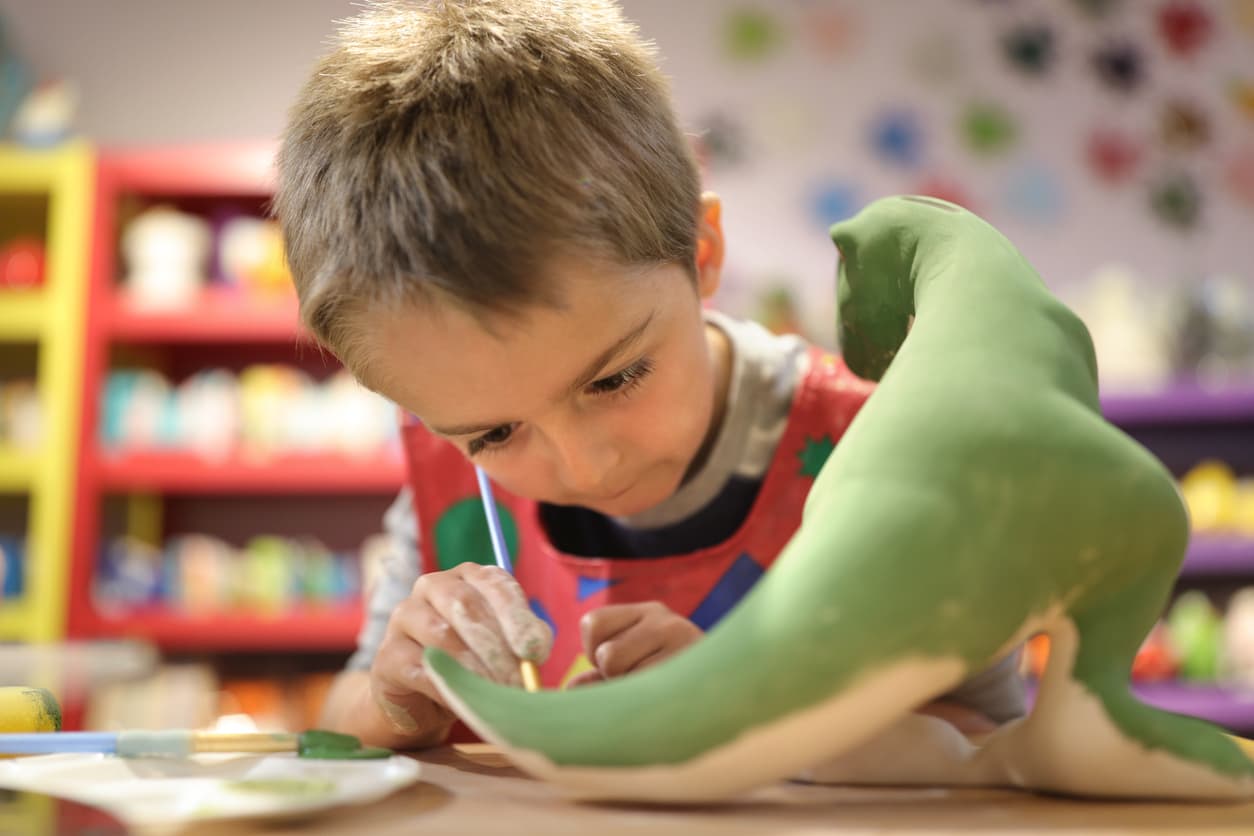A wealth of research demonstrates the many benefits animals can provide for individuals with autism. In addition to providing companionship, comfort, and affection, animals can help fight loneliness, depression, and anxiety.
Many animals can also help promote positive behaviors and social interactions in children with autism.
Animals can serve as wonderful companions to help people with autism lead fuller, more enriching lives. One way to introduce an animal into your family’s life is by owning a therapy dog. Or, if a therapy dog is not the right fit for your family, several animal activities for kids with autism can provide a wide range of benefits.
Let’s dive into the many positive ways in which engaging in animal activities can impact your family.
Therapy Dogs for Children with Autism
Therapy dogs are specially trained dogs that have been taught to provide care, comfort, and affection as a form of therapy. These dogs have become increasingly popular for families with children with autism—and given the many benefits, it’s no wonder why.
Not only can therapy dogs provide a calming and reassuring presence to children in stressful situations, but they can also encourage children to engage in social interactions and serve as conversational ice breakers.
Many families opt to choose a therapy dog that has received extensive training, while others choose to purchase one and then train it themselves. Some family dogs that have naturally calm and affectionate demeanors may serve their purpose without formal training.
Whichever route you choose to go with a therapy dog, it’s important to make sure that the dog will fit in well with the family and is a good match for the child in terms of needs and personality.
Animal Activities for Kids with Autism
Dogs aren’t for every family. Whether it’s due to allergies, your lifestyle, or another reason, it’s a reality that a dog, even a highly trained one, won’t necessarily be a match for you and your child.
Luckily, owning a therapy dog isn’t the only way to incorporate animals into your family’s life. You can still gain amazing benefits by engaging in animal activities for kids with autism. Your child’s love of animals can be used to capture their sense of wonder and improve their fine motor skills.
Virtual Activities
There are many activities that you and your child can do from the comfort of your own home. Furthermore, many of these are low-cost or free!
- Check out videos of animals at the Los Angeles Zoo
- Take a virtual tour of Yellowstone National Park to see some of its main attractions
- Explore marine biology and paleontology with the American Museum of Natural History
- Take a deep-sea dive with the Monterey Bay Aquarium Research Institute and learn more about marine habitats, climate change, and the various species of the oceans
- View live animal webcams at the Smithsonian National Zoo
- Pique your child’s interest in the plants and animals of their backyard, such as toads, frogs, butterflies, and more at the Nature Museum of Chicago
- Tag along virtually on a dive to see marine habitats and sanctuaries with National Oceanic and Atmospheric Administration (NOAA)
Animal Activities at Home
- Animal print sensory play
- Cut out two prints each of various animals and play a matching game
- Learn more about different emotions with a printable animal emotions game
- Improve fine motor skills with a Free the Animals activity where your child removes rubber bands from an animal toy
- Work on breathing skills using various animal breath techniques
- Build an animal out of a tissue box and “feed” it food through its mouth
There are truly endless animal-themed activities, games, and skill-building activities that you and your child can do together. Not only will they help encourage your child’s love of animals, but these activities can improve their fine motor skills as well.
Learn More with Therapeutic Pathways
If you’re interested in learning more about animal-based activities you can do with your child, don’t hesitate to contact the team at Therapeutic Pathways. Our team knows the best techniques, resources, and strategies to help your child thrive and grow while engaging in their interests. Call Therapeutic Pathways at (209) 422-3280 for more information.
 Listen to Our Podcast
Listen to Our Podcast
